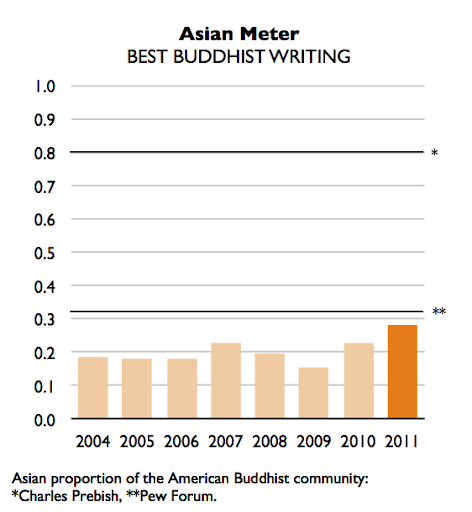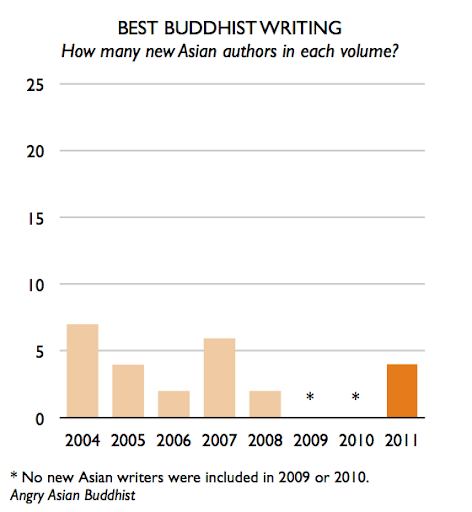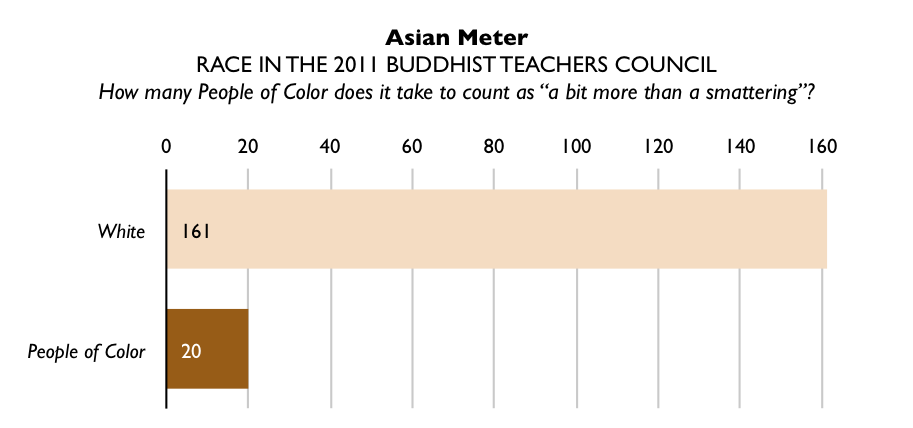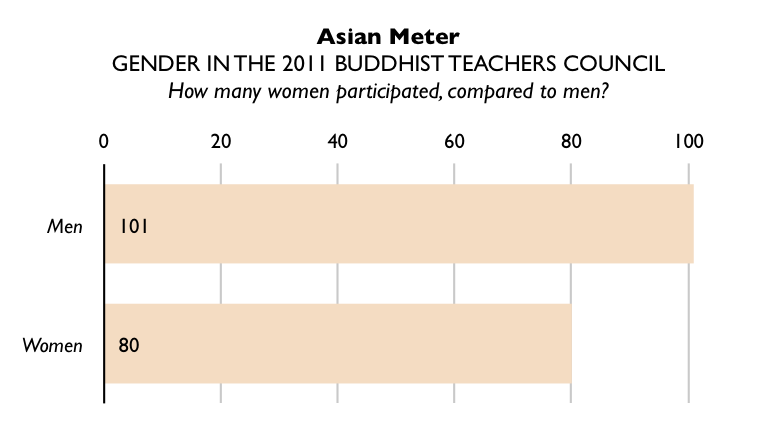A recent post by Tassja at Womanist Musings stirred up some controversy in the Buddhist blogosphere around the themes of culture, race, privilege, and appropriation. More importantly, this maelstrom pulled in the voice of a frequent commenter with whom I coauthored a letter to Buddhadharma, inspiring her to write in solidarity with Tassja. She frequently comments as Liriel.
My name is Wisdom. Specifically, Prajña. As in Prajñaparamita. My legal name. I never changed it. It is the name my parents gave me at birth, encompassing all their hopes for how I would deal with the myriad array of choices in my future.
This is what we mean when we say that Buddhism is written on our bodies.
Chinese school at the Chan temple is where I learned to dance from the first Chinese Disneyland music box ballerina, fold origami cranes—the last one I folded is now part of an art installation for the victims of the Japan quake—and chant sutras before lunchtime. I still never waste a single grain of rice. The temple library is where my mother would go to borrow cartoons starring the 15th century Zen monk Ikkyu for me to watch. We have a youth orchestra and our own version of the boy scouts that marches under the Buddhist flag. Fifteen years after I was a student there, I attended the funeral of my favorite teacher.
This is what we mean when we say that Buddhism is moulded on our skin.
I would like to tell you how Buddhism influences my father’s treatment of his patients, every one of whom are criminally insane. I would like to tell you how Buddhism plays a role in the way my mother lends the money she doesn’t have to spare. I would like to tell you of how Buddhism sustained my aunt through the famine and my uncle through the war—I would like to tell you how it gave some measure of peace to those who did not survive.
Because this is what we mean when we say that Buddhism flows in our blood.
I would like to tell you, but I am afraid. I am afraid of you Barbara O’Brien, Kyle Lovett, and Anonymous Commenter. I have a bone-deep fear of the things you will say about my father, my mother, my aunts and uncles, my cousins, my grandparents, and my three-year-old brother. I am terrified because I can see my future in what you are presently doing to Tassja.
You might tell me that Buddhism belongs in the meditation center and not the hospital. You might tell me that the war is over so what does it matter. You might tell me famine is a state of mind or any number of other things equally indicative of never having helplessly watched a child starve to death. You could discount all my family’s blood, sweat, and tears and the way they flow into and out of the Buddhism I live everyday.
Or perhaps what I say will not matter in the least. You could disregard everything I say in favor of ad feminam attacks about my being an angry person of color with a chipped shoulder. Or about my being young, in my early twenties, and thus uninformed. Or about my being an illogical woman, a “silly cow.”
All these barbs will likely be pointed at me as they are being used against Tassja, and I am afraid. But I am still here, still non-white, still young, still female, still Buddhist, still speaking out in order to tell you that this fear you strike in my heart that makes my fingers numb as I type is the issue. Not Richard Gere. Every time I want to express my differing perspective, I’m silenced by the shitstorm I know is waiting to demean my person and mock my loved ones, rather than engage with the logic of my thesis.
And so I take refuge in the non-white, non-English-speaking, immigrant sanghas I was raised in. And thus our bodies and our voices are absent from your conferences and self-congratulatory blogs. And consequently there are few to challenge your cocksure assertions of your own diversity and inclusiveness even as I stand here feeling alienated.
I retire to await your abuse with one last thought, the one that constantly plagues my mind as I read your vitriolic reactions to Tassja and Arun: there is always so much talk of detachment and transience and samsara in your cavalier dismissal of these writers, but where is your consideration for the other great pillar of Buddhism? Compassion. Where is your loving-kindness and empathy for your fellow sentient beings who suffer? Beings whose suffering is as real as yours? Beings whose suffering you should feel as you own rather than mocking as ridiculous or dismissing as inconsequential?
Na Mo Guan Shi Yin Pu Sa.




